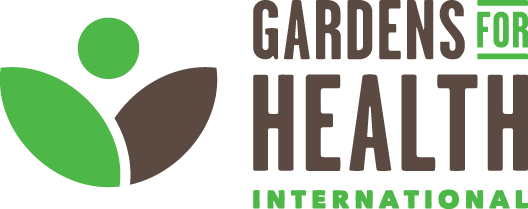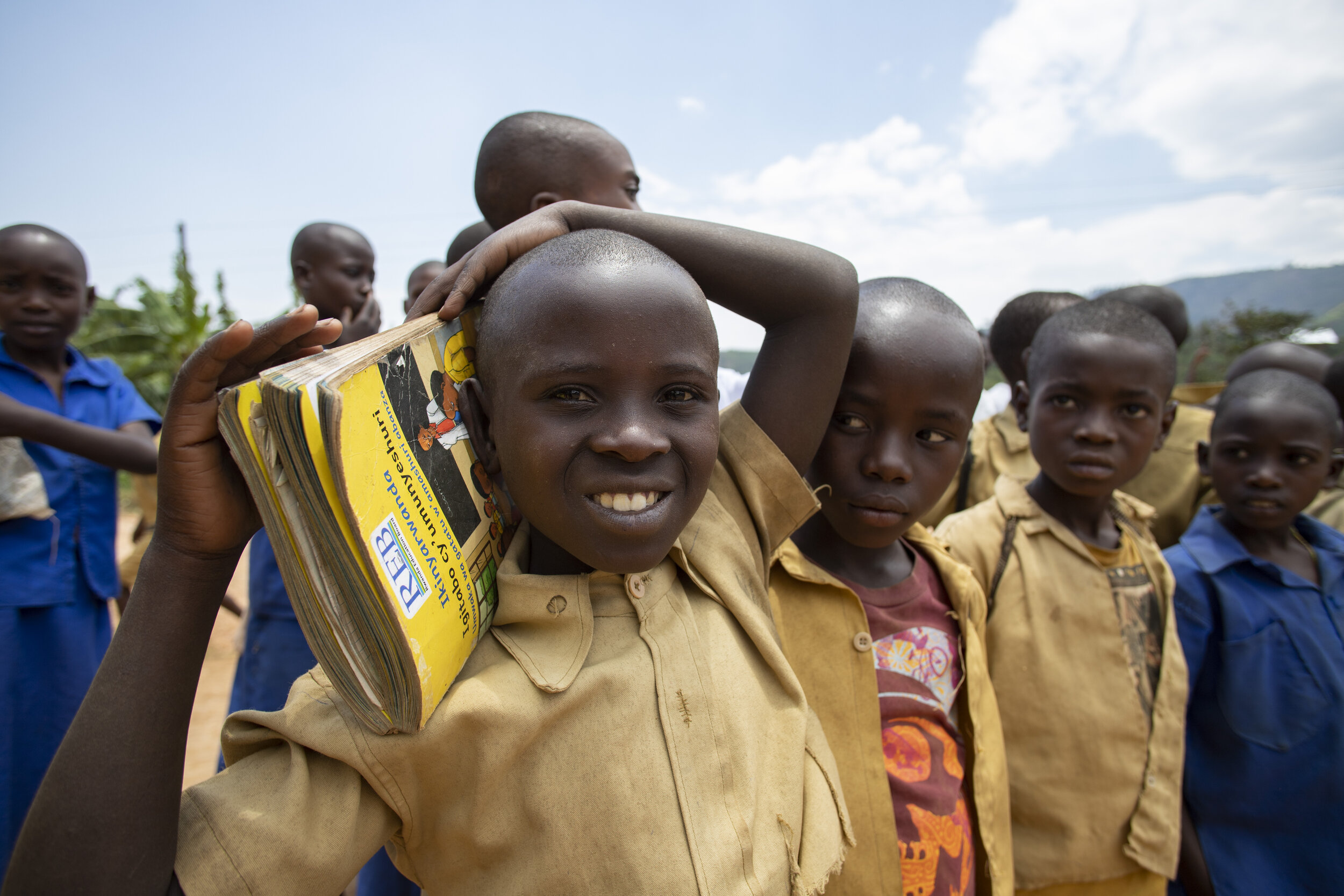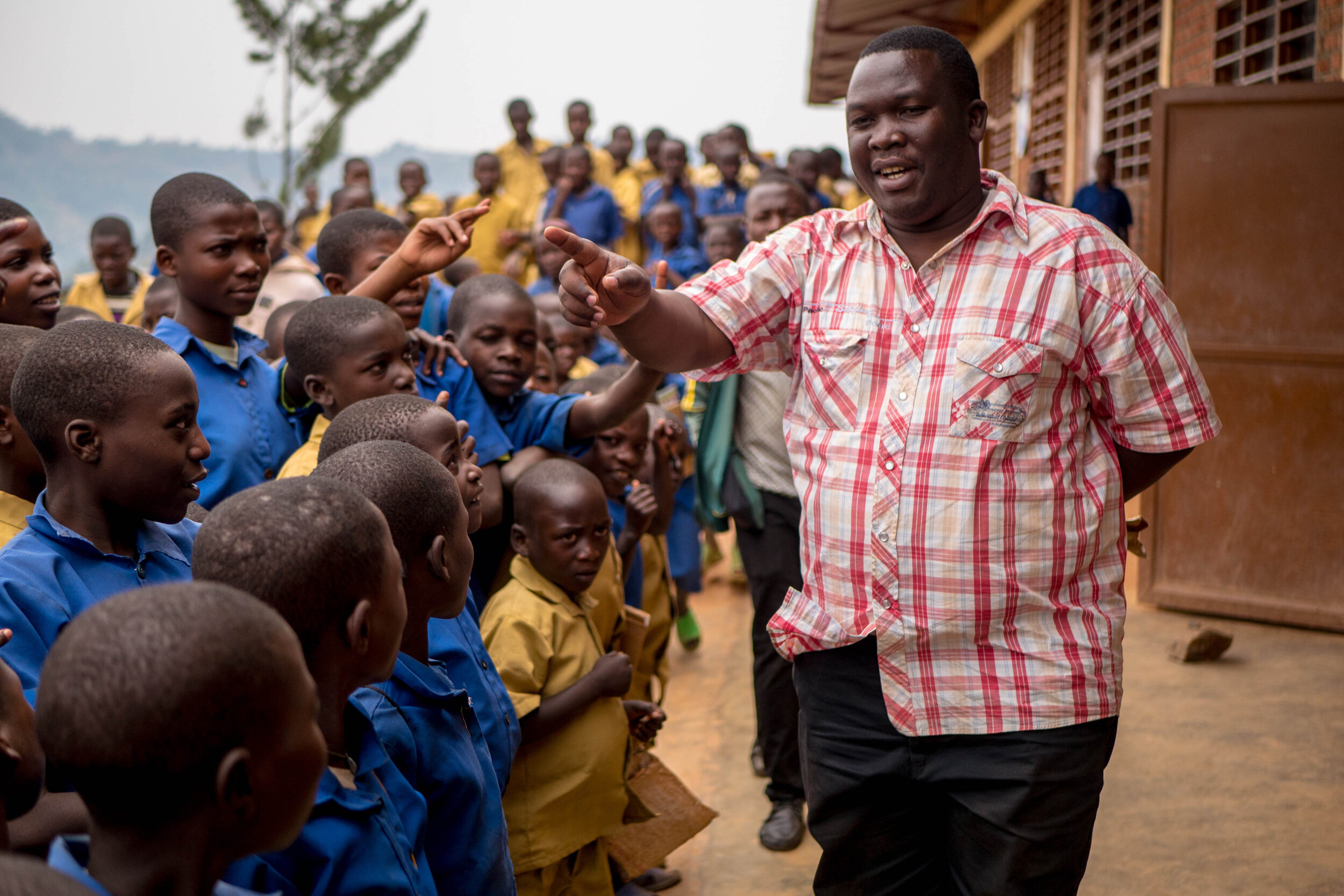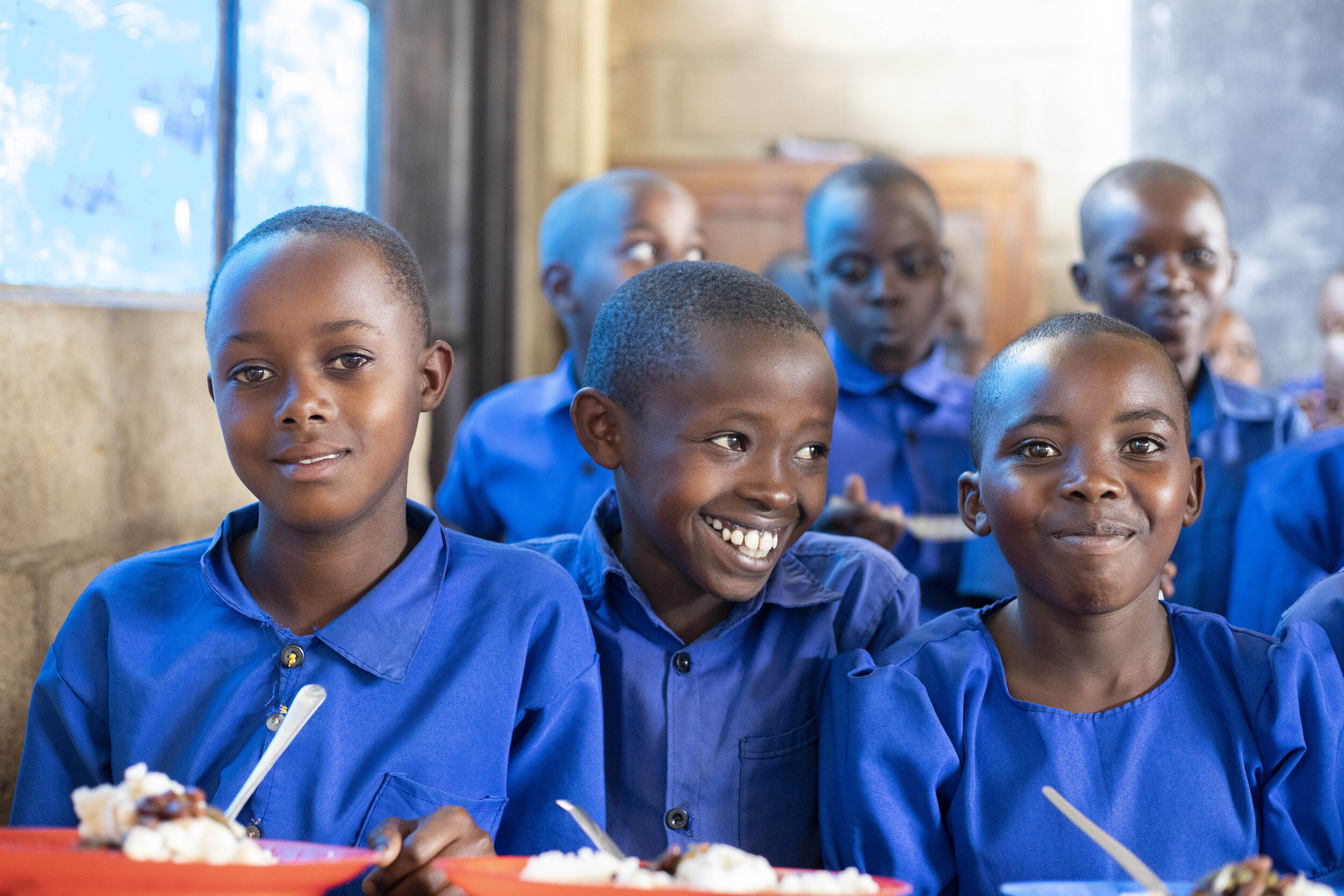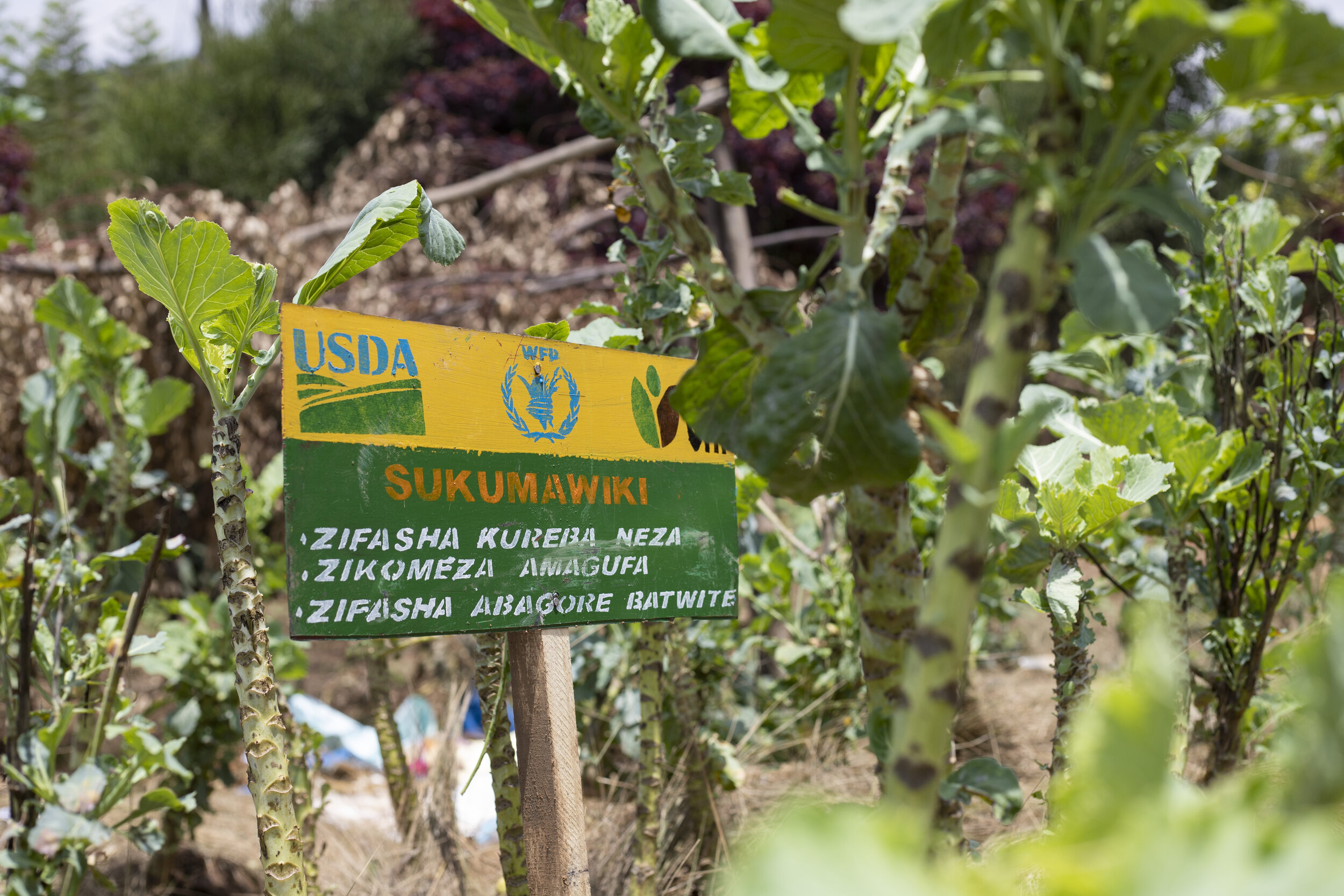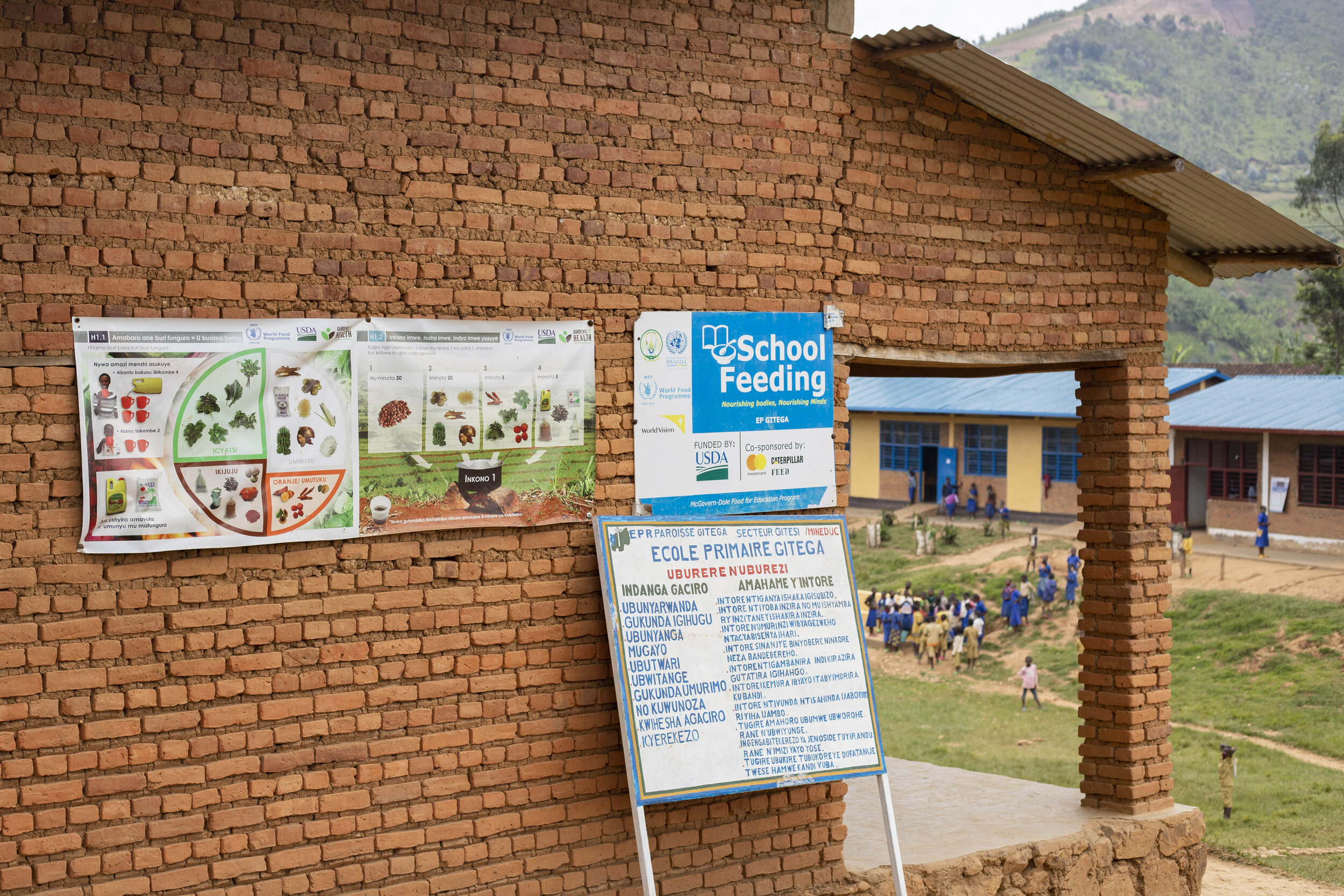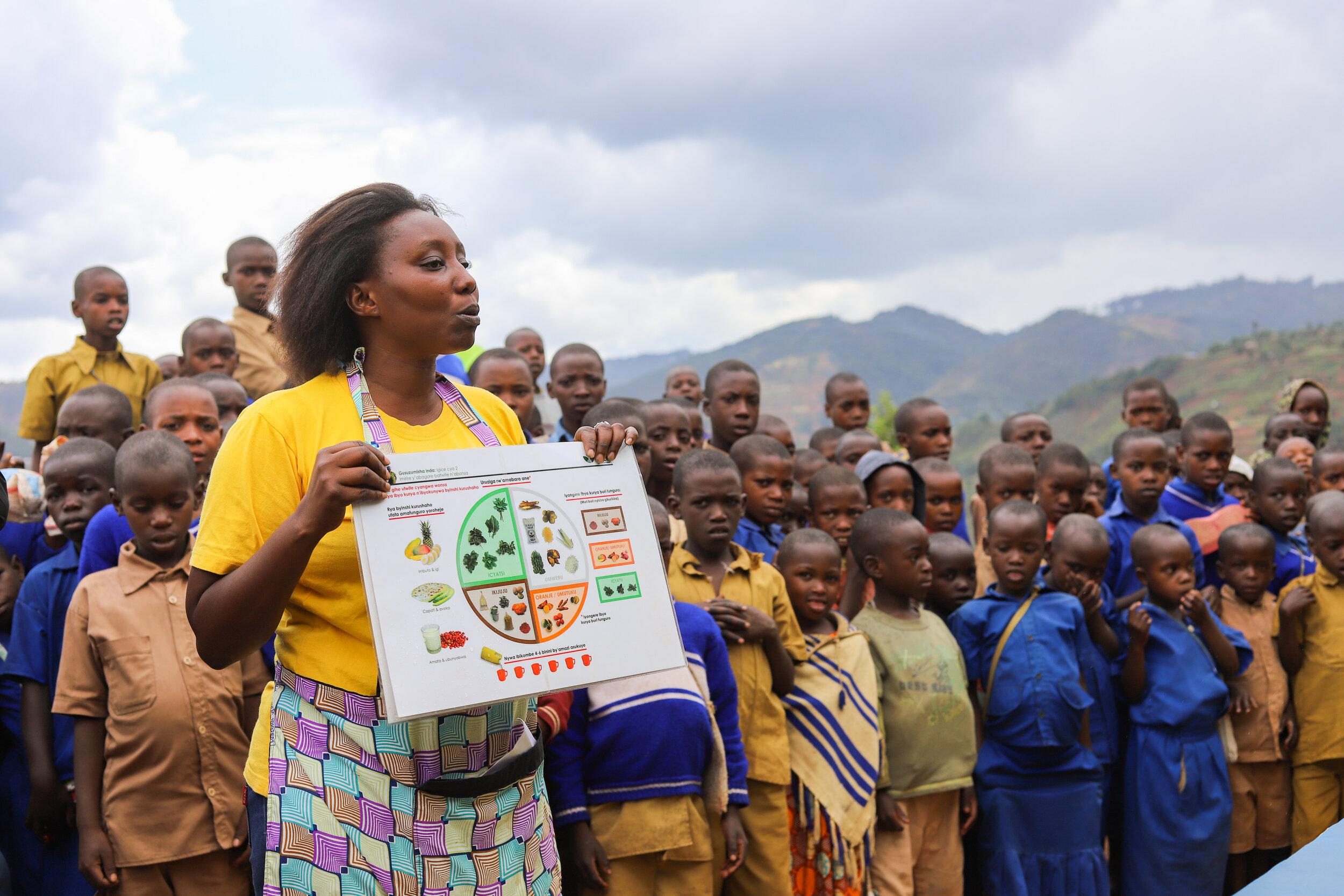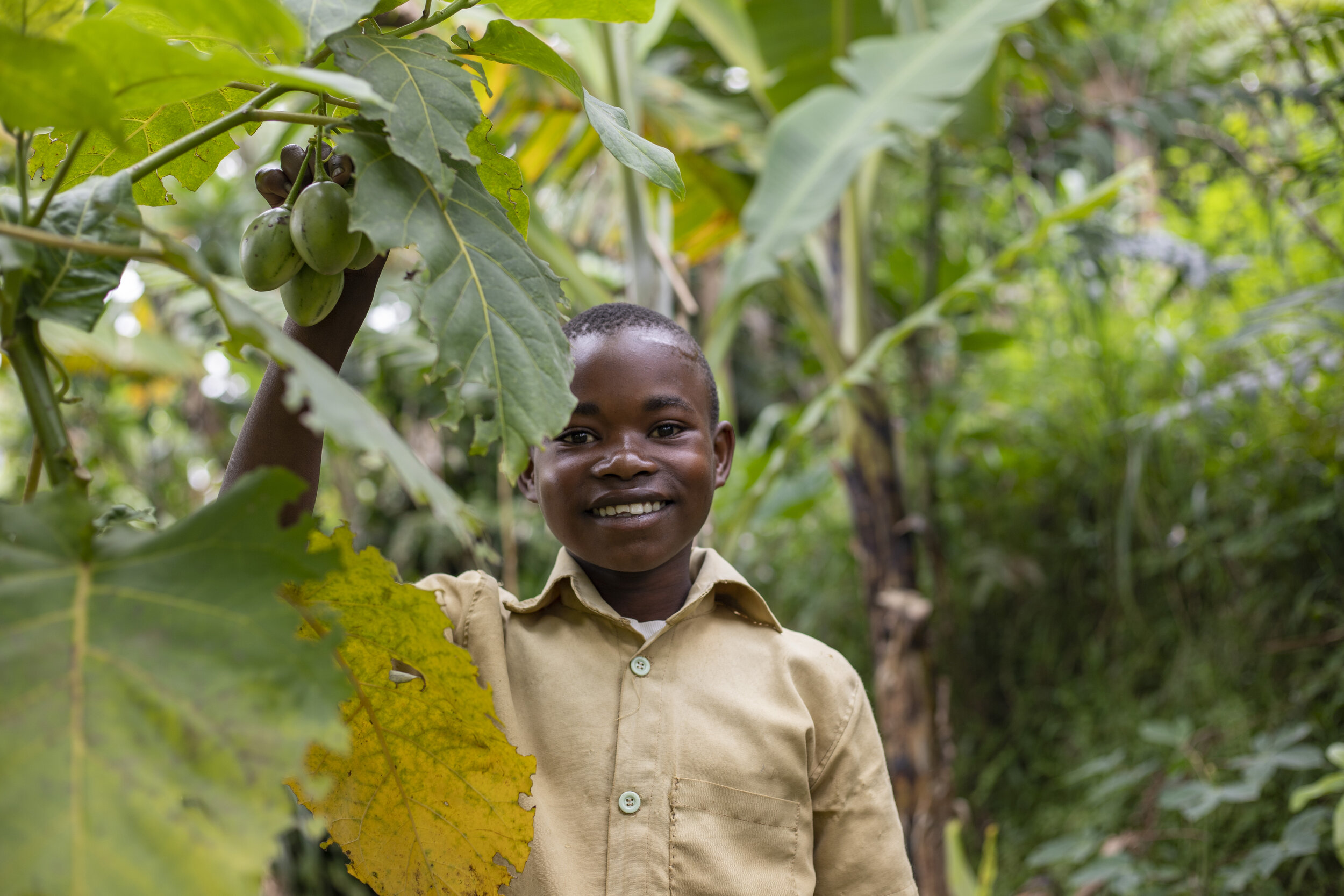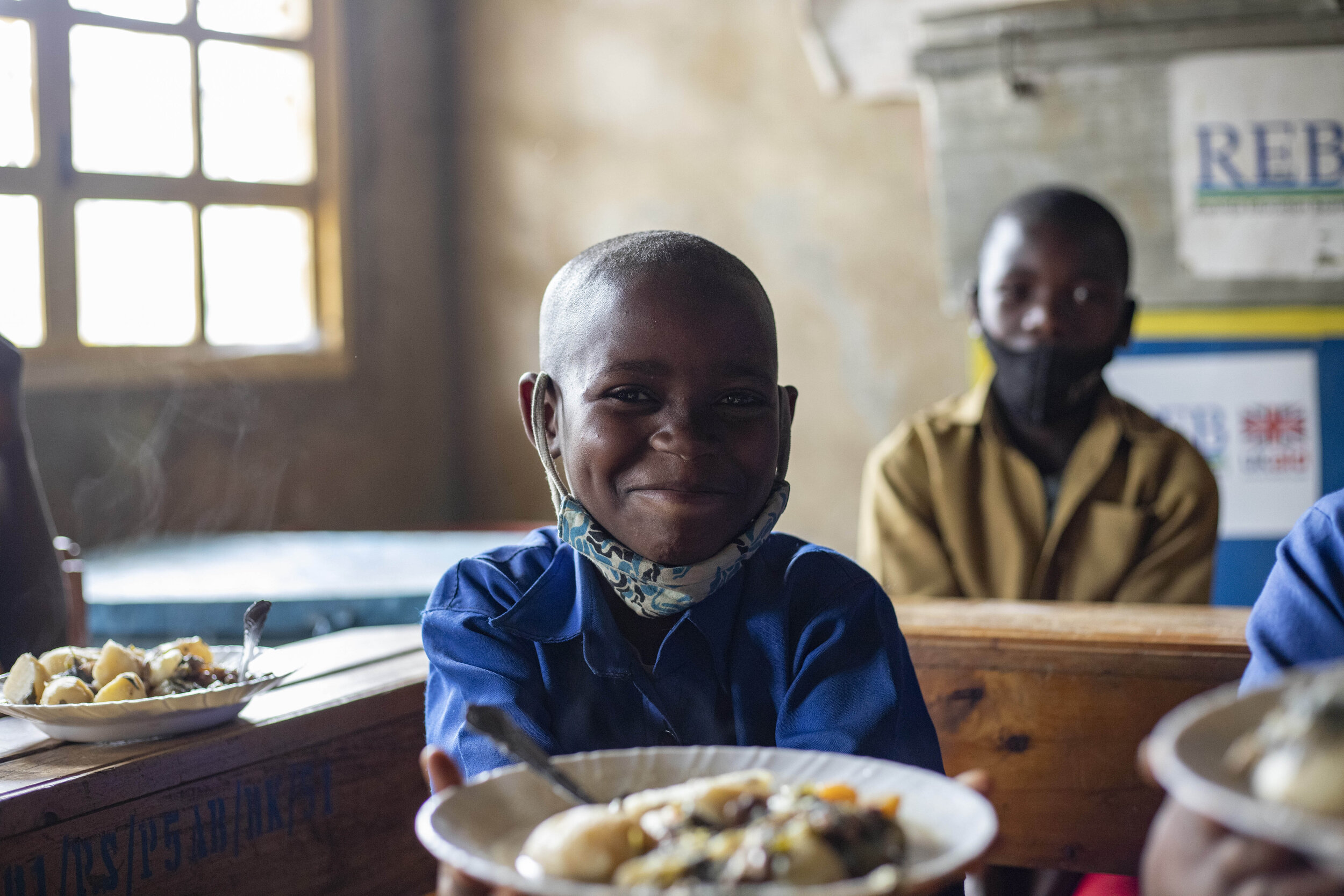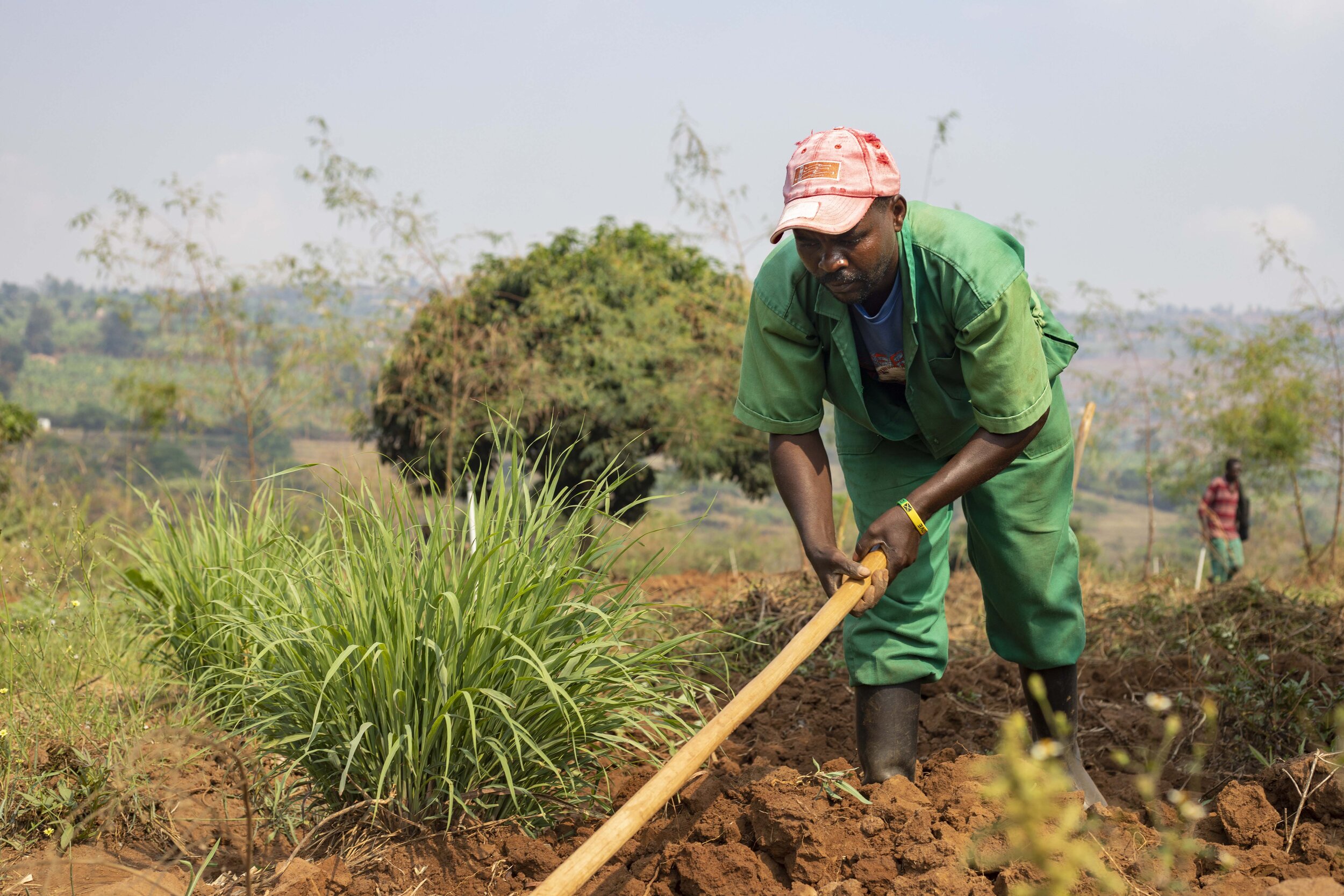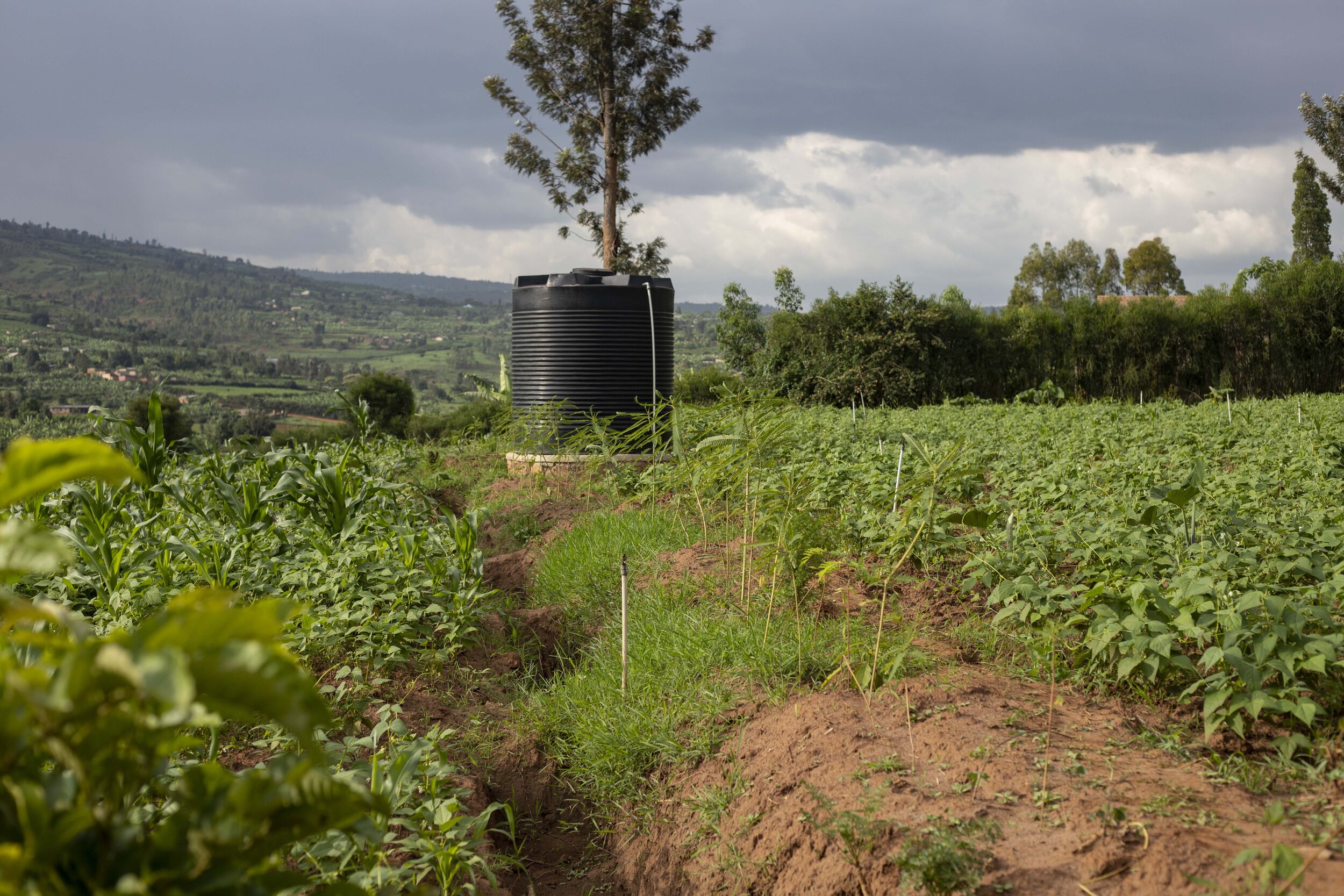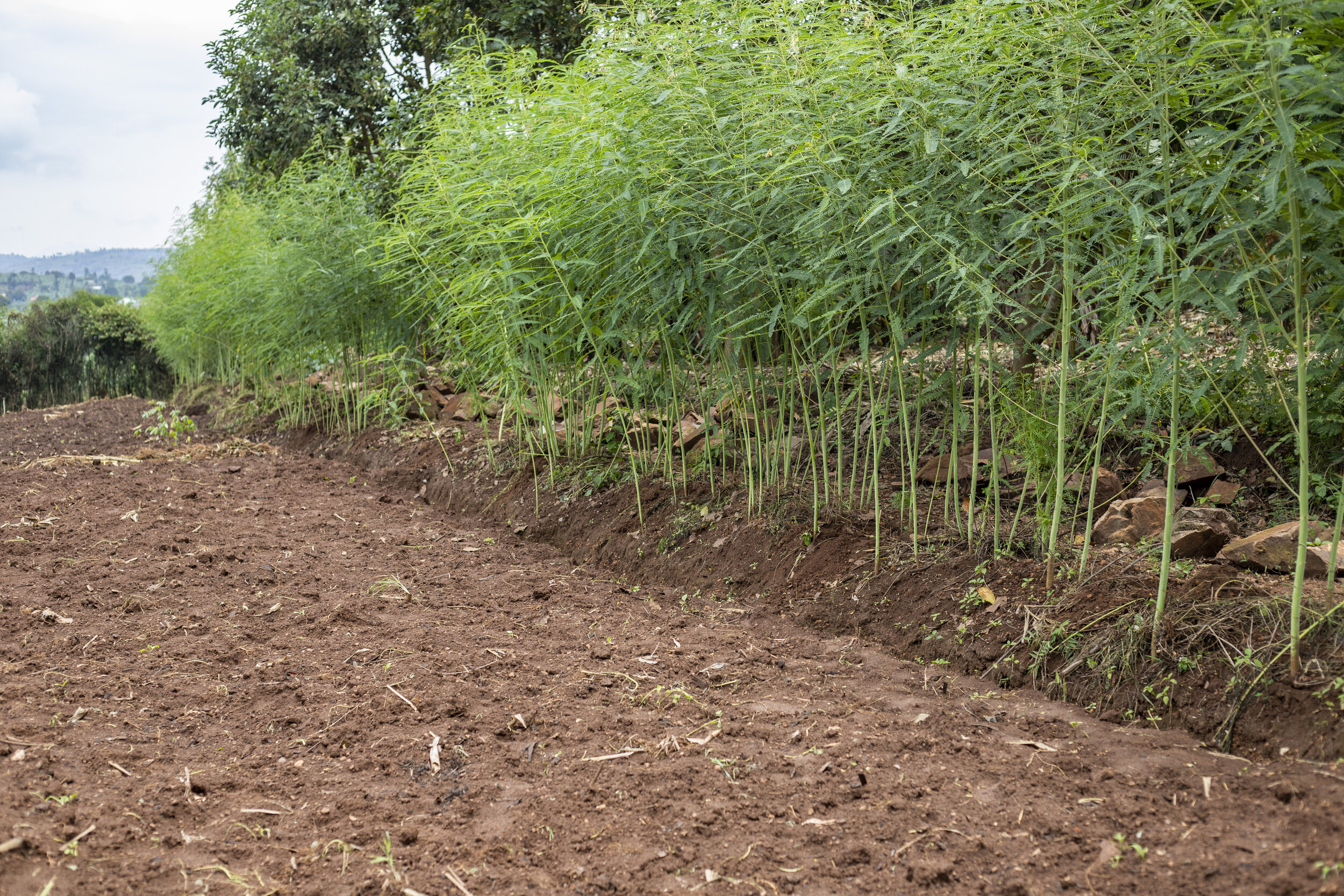
With over a decade of experience in Rwanda, GHI has emerged as an expert in nutrition-sensitive agriculture interventions. By partnering with likeminded organizations, we are expanding our reach to new settings and populations, such as schools and refugee camps.
Bringing nutrition to the classroom
Since 2017, GHI has been an implementing partner of the Nobel Peace Prize-winning UN World Food Programme as part of their Home Grown School Feeding Initiative. We bring nutrition and agriculture education to 104 schools across Rwanda, directly serving 93,000 students and their families. We establish vegetable gardens, seed banks, and nurseries in the schools to serve as learning tools for students, educators, and community members, as well as provide nutrient-rich food to supplement school lunches. With seeds and supervision from GHI, teachers and students create demonstration vegetable gardens together at all participating schools.
We continue to organize activities to keep students and their communities motivated about healthy meals. Gardens for Health coordinates class competitions to maintain the best garden and awards prizes to the winning classes. Additionally, we host Parents Days — festive events where parents participate in One Pot, One Hour cooking demonstrations at their children’s schools, and where students have the opportunity to show off what they’ve learned through songs, skits, and dance.
In 2021, we are broadening the scope of this project to three new districts and 28 new schools. Through this partnership, we will reach thousands of more families with the seeds, skills, and knowledge to end malnutrition.
Partnering with kate spade to empower women
In 2017, Gardens for Health partnered with New York-based fashion company kate spade to offer agriculture and nutrition trainings to a cooperative of over 70 women artisans. With funding from kate spade’s charitable organization, the on purpose fund, GHI provided nutrition-sensitive education to members of the women’s cooperative and trained local health clinic staff. We have operated our Maternal Nutrition Program throughout the region, training pregnant women on essential nutrition knowledge, as well as equipping them with seeds and skills to create home vegetable gardens. Additionally, at the newly-constructed kate spade Sports and Learning Center, we trained local leaders on agriculture and health topics, so that they will in turn share this knowledge with members of their community.
Akagera National Park
In 2020, we partnered with Akagera Park, Rwanda’s wildlife preserve and safari, to train at-risk neighboring communities with essential agriculture, nutrition, and health lessons. We trained 27 families at risk of malnutrition.
Reed Jules Oppenheimer Foundation
In 2020, our agriculture team participated in the International Permaculture Design Course hosted by Mainsprings in Tanzania and sponsored by the Reed Jules Oppenheimer Foundation to learn about sustainable agriculture and ecosystem management. They returned to GHI with new tactics for making our farm more holistic and harmonious with the natural ecosystem. We explored permaculture at our farm headquarters and integrated climate-resilient practices in our agriculture curriculum.
DMM.HeHe
In 2020, the combined effects of COVID-19 and the resulting mitigation measures disrupted the daily lives of Rwandans. By partnering with a DMM.HeHe, a mobile technologies company that digitizes trade and offers service delivery, we expanded our nutrition-sensitive awareness model to a larger Rwandan audience.
Reaching refugees
In 2017, we partnered with Save the Children to bring the GHI model to 475 families in Mahama refugee camp, and in 2018 we partnered with the U.S. State Department to train 300 farmers in Kigeme refugee camp.
